(kontumtv.vn) – Summer vacation is a time for students to rest after a year of hard study, but it also makes parents worry because children staying at home means they are often exposed to electronic devices and internet connections.
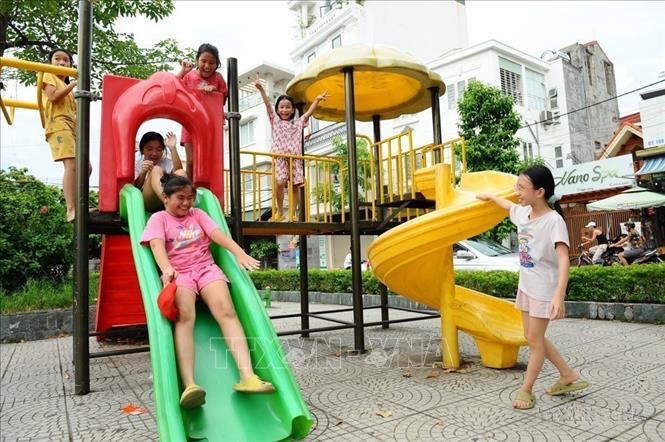
This affects the health, psychology as well as concerns about the safety and comprehensive development of children. Many parents are quite confused in finding safe and useful activities to keep their children entertained and educated during the summer vacation. Authorities are also trying to come up with solutions to improve knowledge and skills appropriate for each age group, helping children have a "digital immune system" to self-aware and prevent risks and dangers of insecurity online.
Parents are worried
Many parents are extremely concerned about the long summer vacation because their children stay at home with electronic devices and frequently access social networks without having enough knowledge and self-protection skills, facing many risks of lack of safety on the internet as well as bad and toxic information.
Ms. Hong Nhung (Thanh Xuan district, Hanoi ) has a child in grade 4. She and her husband have agreed to only allow their child to use the phone and TV for 1 hour a day (30 minutes of watching the phone and 30 minutes of watching TV). "Watching the phone too much will take away the child's playtime and cause a loss of connection between family members," Ms. Nhung said.
Ms. Nguyen Trang Linh (Dong Da district, Hanoi) informed that during the summer, her child was off school but she and her husband were working and did not have time to spend close time with their child. The family did not want to send their child to summer classes, so they sent the child to play with their grandparents and picked him up in the afternoon. However, the grandparents at home pampered their child so they often let their child use their phone all day, and they could not control the content their child accessed on social networks. After a few days, Ms. Linh had to agree on a rule that her child was only allowed to use the phone for 30 minutes a day when her parents were home, and at the same time, the parents took turns instructing their child on what content they should view online and explaining what bad content should be avoided.
According to experts, using phones or social networks at an early age will cause many consequences such as reduced concentration, memory when studying, being absorbed in the "virtual" world , no more time for family, friends, on the other hand, bad information will affect children's mental health. If children are exposed to technology at an early age but are supported and guided by their parents, smartphones and computers will help children find information and data for studying, promoting the self-study process more effectively.
Ms. Nguyen Thi Nga, Deputy Director of the Department of Children (Ministry of Labor, War Invalids and Social Affairs) said: Children using the internet too much can lead to "addiction" and become a habit that is very difficult to cure. In addition, when going online, besides the benefits, children are very susceptible to risks such as viewing images and information with harmful content and inappropriate for their age.
Mr. Tran Dang Khoa, Deputy Director of the Department of Information Security, Ministry of Information and Communications, pointed out 5 major risks and threats to children in cyberspace. These are access to harmful content that distorts thinking, lifestyle, and development; having private information and personal information spread, negatively affecting life; being bullied online in many different forms; excessive use and falling into a state of "addiction" to the internet; being lured, enticed, harassed, scammed, threatened, blackmailed, forced to participate in illegal activities... Statistics from the Department of Information Security show that, with more than 70% of the population using the internet, Vietnam is among the countries with a high rate of internet users. Our country has about 24.7 million children, accounting for nearly 25% of the population. Children access the internet and digital devices from a very early age to study, entertain, communicate with relatives and participate in daily activities.
According to the Ministry of Labor, War Invalids and Social Affairs, the time Vietnamese children spend on social networks is from 5 to 7 hours/day. Therefore, protecting children in cyberspace poses many challenges, in which internet addiction is one of the 6 main risk groups when children participate in the online environment...
Accompanying the child
In order to protect children in the online environment, recently, relevant organizations and units have closely coordinated to implement the Program to Protect and Support Children to Interact Healthily and Creatively in the Online Environment for the period 2021-2025. Along with that, ministries, departments and branches have made efforts to maintain a safe online environment, develop an ecosystem of products and apply Vietnamese digital technology for children to learn, connect, interact, and entertain creatively and healthily in the online environment. Units regularly improve knowledge and skills appropriate for each age group, helping children have a "digital immune system" to self-aware and prevent risks and dangers of insecurity online.
The National Child Protection Hotline 111, under the Department of Children (Ministry of Labor, War Invalids and Social Affairs), is a unit that connects and handles cases of abuse, and provides advice on child protection, care and education. Each year, the hotline receives more than 400-500 calls about child issues on the internet. Some cases are called by parents and children to the hotline for advice, while others are directly called by hotline staff to intervene.
Assessing the importance of protecting children in the current cyberspace environment, Deputy Director of the Department of Information Security (Ministry of Information and Communications) Tran Dang Khoa said that children are the new generation of digital citizens, contributing to the prosperity of cyberspace. However, the lack of knowledge and skills to protect themselves in the digital space is a limitation and challenge.
According to the representative of the Department of Children, supporting children who are “addicted” to the internet and social networks is facing many difficulties. This requires investment in human resources, time and the children’s ability to reduce their dependence on technology. Therefore, families need to focus on prevention, ensuring that children do not fall into a state of “addiction” to the internet from an early age.
Associate Professor, Dr. Tran Thanh Nam, lecturer at the University of Education (Hanoi National University) affirmed that the digital world helps people to study and live better, however, children may face many risks of being bullied online or sexually harassed via social networks... Therefore, parents need to learn and upgrade their own safety skills, then help their children identify and respond appropriately when they are victims of online bullying on social networks.
According to experts, parents need to set time limits for their children to use electronic devices, monitor and guide children to identify and avoid bad and toxic content, and how to protect personal information on the internet. In addition, parents should also participate with their children in educational activities and learning applications to create connections, help control the content children access, and encourage children to share and discuss to guide their thinking.
Signing your child up for sports, music, art, and extracurricular activities will reduce the amount of time they spend on electronic devices. Parents should also teach their children basic internet safety principles such as not sharing personal information, interacting with strangers, and how to identify and report bad, toxic content or online bullying.
Most importantly, parents need to set an example, not using phones during meals, before going to bed, and setting limits for themselves in using electronic devices so that children can learn and form good habits. With proper supervision and education, parents can help their children avoid potential risks and use technology safely and effectively.
Source


![[Photo] Journalists moved to tears at the Memorial Service for the soldiers who died in Gac Ma](https://vphoto.vietnam.vn/thumb/1200x675/vietnam/resource/IMAGE/2025/5/30/9454613a55c54c16bf8c0efa51883456)

![[Photo] General Secretary To Lam receives Chief of the Central Office of the Lao People's Revolutionary Party](https://vphoto.vietnam.vn/thumb/1200x675/vietnam/resource/IMAGE/2025/5/30/140435f4b39d4599a3d17975dfb444c5)
![[Photo] A delegation of 100 journalists from the Vietnam Journalists Association visits the soldiers and people of Truong Sa island district.](https://vphoto.vietnam.vn/thumb/1200x675/vietnam/resource/IMAGE/2025/5/30/0984a986227d4e988177f560d2e1563e)

![[Photo] National Conference "100 years of Vietnamese Revolutionary Press accompanying the glorious cause of the Party and the nation"](https://vphoto.vietnam.vn/thumb/1200x675/vietnam/resource/IMAGE/2025/5/30/1cf6cd5c8a934ebfa347028dcb08358c)
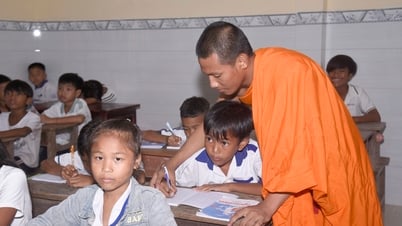

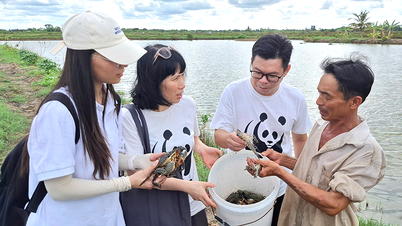













































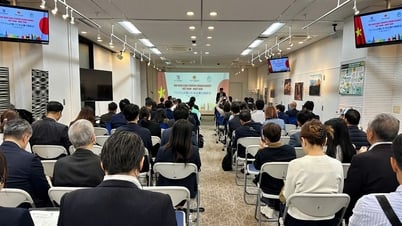













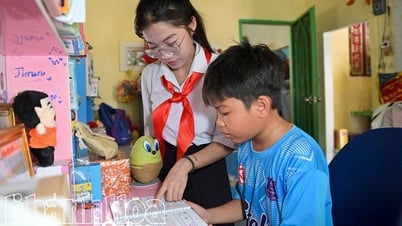

















Comment (0)